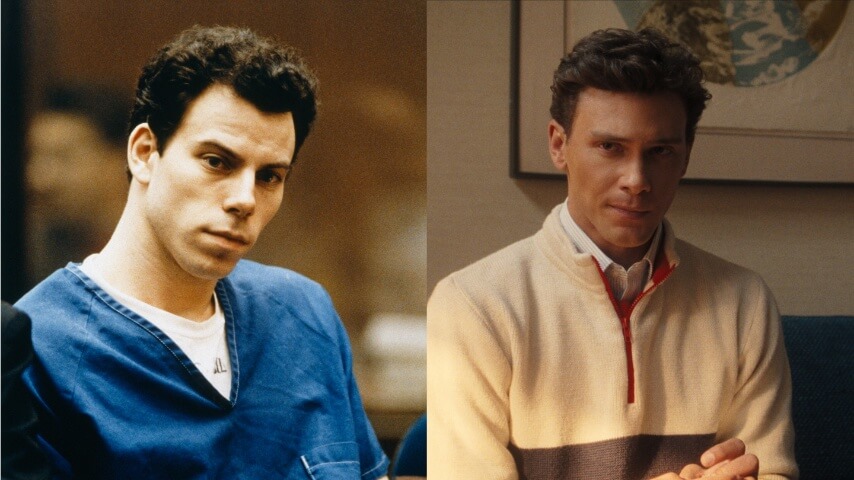Erik Menendez not happy to be one of Ryan Murphy's Monsters
Menendez has issued a statement condemning Murphy's new Netflix series Monsters, calling the true-crime show "disheartening slander"
Left: Erik Menendez in 1994 (Credit: Ted Soqui / Contributor), Right: Cooper Koch in Monsters (Credit: Netflix)
Few TV creators in the current landscape have worked more with the story of actual, living people than Ryan Murphy, and rarely to the pleasure of the living folks in question. (When you’re managing to pick fights with literal centenarians, as Murphy did with Olivia de Havilland for the first season of his FX series Feud, you know you’re on to something special.) So it’s not wholly surprising to learn that Erik Menendez, whose life has just been dramatized for Murphy’s true-crime series Monsters, isn’t wild about how he and his brother Lyle have been portrayed in the series, which debuted on Netflix on September 19.
This is per THR, reporting on a statement Menendez has issued through the social media account of his wife, Tammi. Asking “Is the truth not enough?” Menendez accuses Murphy of undermining “decades of progress in shedding light on childhood trauma” with the show, the second installment of the Monster franchise. (After the Evan Peters’-starring Dahmer, whose own subject didn’t object to his own depiction by Murphy and his team largely on account of having died in prison in 1994.) Calling the series “disheartening slander,” Menendez seems to take especial issue with the show’s depiction of Lyle (played by Nicholas Alexander Chavez), referring to its depiction of him as being full of “blatant lies.” “Murphy,” he writes, “Shapes his horrible narrative through vile and appalling character portrayals of Lyle and of me and disheartening slander.”
Both Menendez brothers are serving terms of life imprisonment without possibility of parole. Both men have stated that they killed their parents in 1994 after years of physical and sexual abuse from their father, José Menendez (who’s played by Javier Bardem in the series). In his statement, Erik Menendez accuses Murphy and his fellow writers and producers of distorting the reality of the brothers’ reactions to their father’s actions, writing that the series takes viewers “back through time to an era when the prosecution built a narrative on a belief system that males were not sexually abused, and that males experienced rape trauma differently than women.”